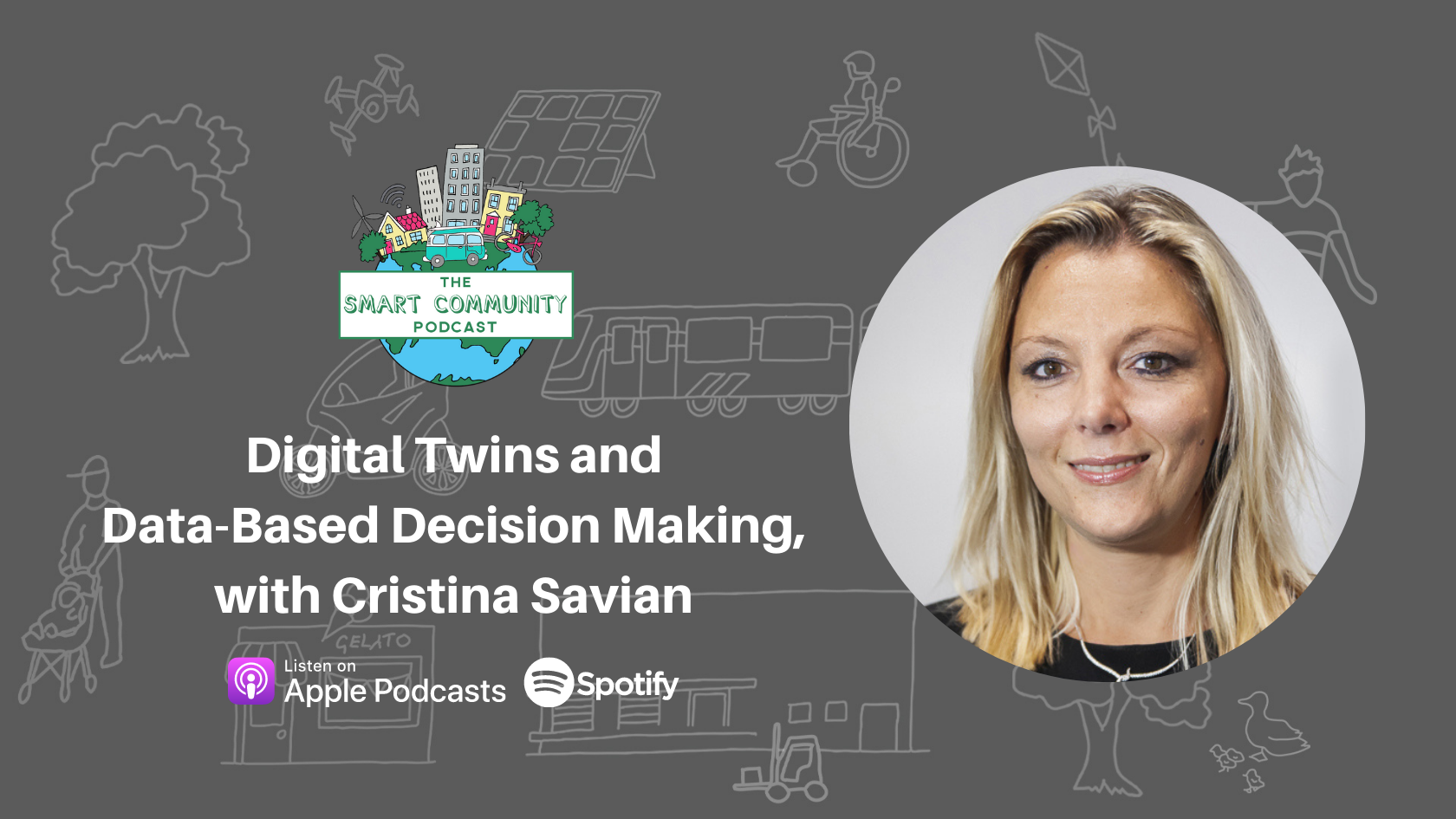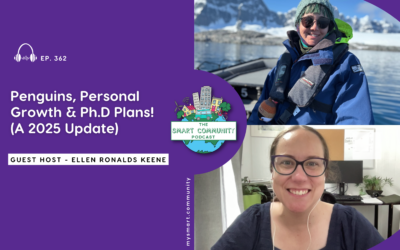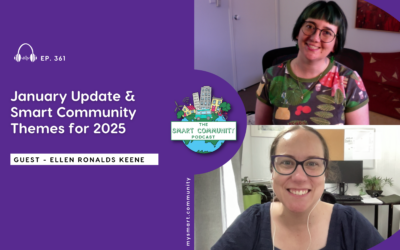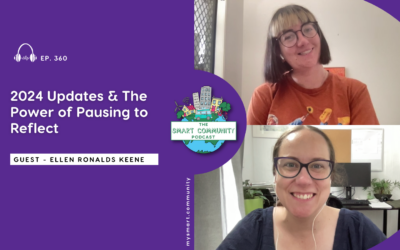Hi #smartcommunity friends. In this episode of the Smart Community Podcast, I have a great conversation with Cristina Savian, the founder of BE-WISE, an international consultancy focused on driving the adoption of technology bringing to market the most promising innovation in the construction and property industries across Europe, US and Australia. Cristina tells us about her background in civil engineering and technology in Italy, the UK and now Australia, as well as her passion for digital twins. We start with a bit of a Digital Twin 101 explanation, and Cristina tells us about how she works in this space. We discuss how digital twins fit into the Smart Community space, the benefits of digital twins as well as use cases for how digital twins can help in the area of mobility and construction. Cristina and I then talk about the challenge of working out what data is worth collecting for digital twins, as well as the access, management and governance of that data. We finish our chat discussing how the pandemic has shifted some of the trends in our cities and what cities of the future might look like. As always we hope you enjoy listening to this episode as much as we enjoyed making it.
Listen here:
What we cover in this episode:
- Cristina’s background in civil engineering and technology, in Italy, the UK and now Australia
- Her passion for digital twin technology
- What a digital twin is and how Cristina works with them in her business
- How digital twins fit into the Smart Community space
- The benefits of digital twins to organisations, local government and community
- Some of the data streams that you would see feeding into digital twins and how they actually would be collected
- The use cases for how digital twins can help in areas like mobility and construction
- The challenge of working out what data is worth collecting for digital twins
- The importance of proper access, management and governance of digital twin data
- How the pandemic has shifted the trends in our cities
- What the cities of the future might look like
Quotes:
“A digital twin is the virtual digital equivalent to a physical product. [The] three main prerequisites are a real space, so the physical space, the virtual space, and the connection of data between the two.”
“The way I see digital twins is just a technology, the next level of technology evolution, right? So the technology’s advanced and we can do a lot better with our assets.”
“If we gather all this information, you know, one building, multiple buildings, then we have city level, right? Immediately, we can start benchmarking and optimise the performance of the buildings, of the cities and feed it back…We can use this technology to know more about how our assets are built and how they’re used. And ultimately, everyone will benefit.”
“During the design phase, you don’t have a physical asset yet, right? So at the moment, there is a debate, can we call it a digital twin, because it’s just a virtual replica, and is not really connected to our built assets. Maybe it’s just a digital replica, but many people refer [to] it as a digital twin. And to be honest, as long as we understand what it is, does it really matter?”
“There’s such a buzz. And there is such big, high expectations on how digital twins can change our cities. And without even really understanding that it’s not just about buying a software, and visualising everything in fancy 3d, it’s about the data [that is behind it]. We don’t make decisions on fancy 3d models, we make decisions on hard data and numbers. The problem is the numbers that we have are bad, and they’re not accurate. So it’s about embracing the digital twin opportunity on trying to have more accurate data, it’s about having better data, better information to enable better decision making.”
“That’s probably the biggest challenge at the moment. For assets, most of the digital data is on the company’s software system. If you ask the asset owner, they don’t necessarily know where the data is. They don’t own the data its locked in somewhere and only really then who is holding that information even knows what is the price, this is not for the benefits of the asset owner, it is not for the benefits of our communities.
“The challenge that we have is, is technology serving people in all of these great new technology trends? Because at the end of the day, it’s about the people. And I think we forget sometimes that we need to design the cities for us, putting us in the centre.”
Links:
Gemini principles in the uk, https://www.cdbb.cam.ac.uk/system/files/documents/TheGeminiPrinciples.pdf
White paper, Digital twins for our built environment https://www.theiet.org/media/4719/digital-twins-for-the-built-environment.pdf
Starlink https://www.starlink.com
Connect:
Find the full show notes at: www.mysmart.community
Connect with Cristina via email cristina@be-wise.xyz on Clubhouse, or at the websites www.be-wise.xyz or www.cristinasavian.com
Connect with me via email: hello@mysmart.community
Connect with My Smart Community via LinkedIn or Twitter and watch on YouTube
The Smart Community Podcast is produced by Perk Digital.






0 Comments